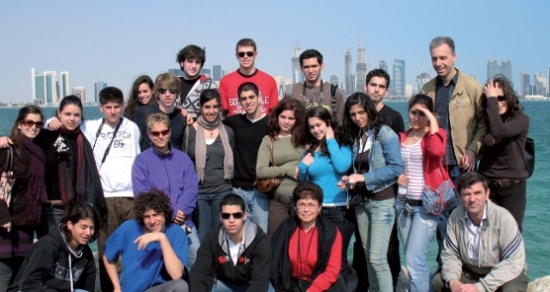
The whole world was there, delegates from every country on earth, the men smart in their dark pressed suits and the women poised in serious skirts and slacks-suits. At the formal opening ceremony each country was announced in turn, delegates stood up and the rest of the world welcomed them by clapping and cheering. Except for Israel. As the Israeli delegation to the recent Model UN (MUN) in Qatar stood up they were greeted with minimal applause, but no booing. The Palestinians, on the other hand, got a huge round of applause, during which they looked straight at the Israelis. But the Israelis were well prepared.
Hundreds of MUN events take place every year all over the world, and Israelis have been holding their own conferences since 1999. In that year, Sara Jane Shapira, a history teacher at the Walworth Barbour American International School in Kfar Shmaryahu, organized Israel’s first MUN with nine participating schools. Today more than thirty schools are involved. “One of our aims is to get people to communicate, to try to reach a consensus,” Shapira explains. “In Israel our International School participates, together with the University High School in Jerusalem, the Druze ORT Ronson High School from Daliat al-Carmel and pupils from Bethlehem, Nazareth and the Palestinian Authority. Students can get to know each other and talk about life and death issues. They can talk about contentious issues like the division of Jerusalem and try to reach a consensus.” Although MUNs are normally run in English, the Foreign Ministry was so impressed by its potential that it recently inaugurated a second annual conference in Hebrew in Jerusalem.
The Model United Nations replicates the real thing; there are committees for Social and Humanitarian Issues, Security Concerns and Politics. NATO, the African League, and the United States National Security Council are represented. The difference is that the pupils representing each country are citizens of a different one. So Americans never represent America, that is left to pupils who could come from anywhere, England, Afghanistan or Iran, for example. This is both educational and eye opening. In Qatar, where Israel was represented by pupils from India and China and Israeli pupils became delegates of Eritrea, Nigeria and Portugal, preconceptions and prejudices were bound to become blurred. Learning the positions of different countries, their politics, health care, educational and electoral systems is a huge eye-opener. “I didn’t know Eritrea existed,” says Chen Cohen, 17, a twelfth-grader at Katzenelson High School in Kfar Saba and one of the 30 Israeli high school pupils at the Qatar conference. “To prepare for my discussions as a representative from there I met the Eritrean Ambassador to Israel and read and studied. Today I know that it is a small, young country that is very isolationist; they don’t want food aid as they think it’s crippling. But they get it anyway.”
Representing Eritrea onstage was one thing, being an Israeli in a largely Arab environment was another. “As Israelis we didn’t have any expectations, we knew that many of the other delegates were from Arab countries like Saudi Arabia, Syria, Lebanon, Pakistan, Algeria, Egypt and Jordan as well as countries like India, Greece, Hungary and El Salvador,” she explained. “There was also a delegation of Palestinians, but we weren’t treated badly at all, in fact people were very pleasant to us.” Cohen was interested to discover that a Lebanese girl on her committee did not know much about the recent war between Israel and her country. She was from the north of Lebanon, and didn’t venture an opinion on the war. “She’s going to college in the States next year,” adds Cohen. “She was very interested to hear that I am going to the army.” The consensus was clear apart from a few isolated cases. Most Arab pupils were happy to talk informally to the Israelis, sharing typical teenage experiences and interests. Cell-phone bills and internet sites and shopping seemed to cut across party lines.
Then there was the boy born in Bangladesh who grew up in Qatar and converted from Islam to Christianity. He confided to the Israeli delegation that his dream was to visit Jerusalem but with an Israeli stamp in his passport he’d never be allowed into many Arab countries again. So, he explained, his dream is to die in Jerusalem and be buried there. And he’s preparing already – he has taught himself the Hatikva. Then he treated the stunned Israeli delegation to a word-perfect rendition.
The Israeli delegation to the Qatar Conference made up slightly less than 10% of the total (30 Israelis out of 350 students from 22 countries) and took home almost 50% of the prizes, including diplomacy, preparedness, speech making and eloquence. At the closing ceremony to which ambassadors in Doha were invited, only the Israelis clapped for Roi Rosenblit although the Palestinian Munir Abdullah Ghannam got a very enthusiastic welcome. The hope is that by the next conference, or the next, or the one after that, the diplomacy and eloquence and sheer goodwill of our delegates will change even this. Who knows – Model United Nations delegates may one day become real UN delegates in NewYork and the goodwill generated at youth conferences may spread throughout the halls at the headquarters in Manhattan where adults in smart suits and skirts set policy for the world at large.
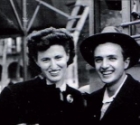 Family Story To Palestine, December 1947
Family Story To Palestine, December 1947 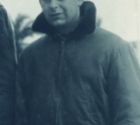 Israel’s 1st International Sports Competition – Basketball
Israel’s 1st International Sports Competition – Basketball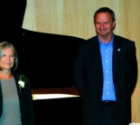 Yakirei Zion & “Yakira Lanu”
Yakirei Zion & “Yakira Lanu” (302x450)-1451381711.jpg) Odeon Oscar
Odeon Oscar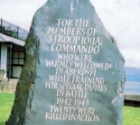 The Jewish Connection
The Jewish Connection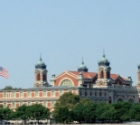 ellis island
ellis island Pamela Peled
Pamela Peled